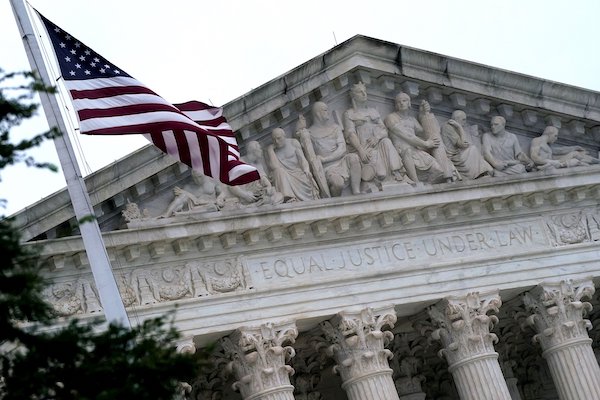
PROSPECT HEIGHTS — A Catholic family and a Catholic high school in Maine have sued the state, alleging that it continues to exclude faith-based schools from a tuition assistance program even after the Supreme Court ruled last year that it couldn’t do so.
In the lawsuit, filed June 13, the plaintiffs argue that amendments made to Maine’s human rights law in 2021 force faith-based schools to forgo participation in the program. The amendments impose religious neutrality on schools, and add new nondiscrimination requirements related to sexual orientation and gender identity.
The family and school at the center of the lawsuit — St. Dominic Academy v. Makin — is the Radonis family, and St. Dominic Academy in Auburn, Maine. St. Dominic Academy is a co-ed pre-K-to-12th grade school. Its Class of 2023 has 29 students. It’s one of two high schools operated by the Diocese of Portland, according to the diocese’s website.
Keith and Valori Radonis are organic farmers in rural Maine, who would like to send one of their children to St. Dominic Academy. The school hopes to participate in the tuition assistance program for the 2023-2024 school year, which is why it filed the lawsuit.
In a statement, Keith and Valori argued that the program shouldn’t contain barriers that keep students from attending certain schools.
“As Catholic parents, we want to provide children with an education that helps them grow in heart, mind, and spirit, preparing them for lives of service to God and neighbor,” they said. “All families should have the option to provide the education that’s right for their children using Maine’s tuition program, including religious families like ours.”
St. Dominic Academy and the diocese did not respond to The Tablet’s request for comment. The Maine Department of Education also did not respond to a request for comment.
This isn’t the first time Maine’s tuition assistance program has been challenged in court. The state first added a requirement to exclude faith-based schools from the program in 1982. And the program was then challenged by parents five times between 1994 and 2017.
Then, last year in the case Carson v. Makin, the Supreme Court ruled 6-3 that the state could no longer exclude faith-based schools from the program. Writing for the majority, Chief Justice John Roberts wrote that “Maine’s ‘nonsectarian’ requirement for its otherwise generally available tuition assistance payments violates the free exercise clause of the First Amendment.
“Regardless of how the benefit and restriction are described, the program operates to identify and exclude otherwise eligible schools on the basis of their religious exercise,” he wrote
The three justices who dissented argued the law did so citing separation of church and state.
However, at the same time the case was working its way through the courts, Maine lawmakers passed the amendments to the state’s human rights law, essentially circumventing a future ruling. The plaintiffs allege in the lawsuit that “Maine’s attempts were open and blatant: craft a new policy to get out from under the clear pronouncement of Carson.”
With the new lawsuit, the Radonis family and St. Dominic want the court to halt Maine’s current law for participation in the tuition assistance program while the court considers the case.
Broadly, they want the court to “enforce the constitutional rule clearly established in Carson, enjoin the unconstitutional conditions that Maine officials continue to impose on the program, and allow the diocese, St. Dominic, and the Radonis family to move forward without delay.”
Adèle Auxier Keim, senior counsel at the Becket Fund for Religious Liberty, who is representing the plaintiffs, in a statement condemned Maine’s amendments to the state human rights law as “illegal and unfair.”
“Maine lawmakers boasted about changing the law to avoid the Supreme Court’s decision in Carson. That’s illegal and unfair,” Keim said in a statement. “We are confident that Maine’s new laws will be struck down just like their old ones were.”
